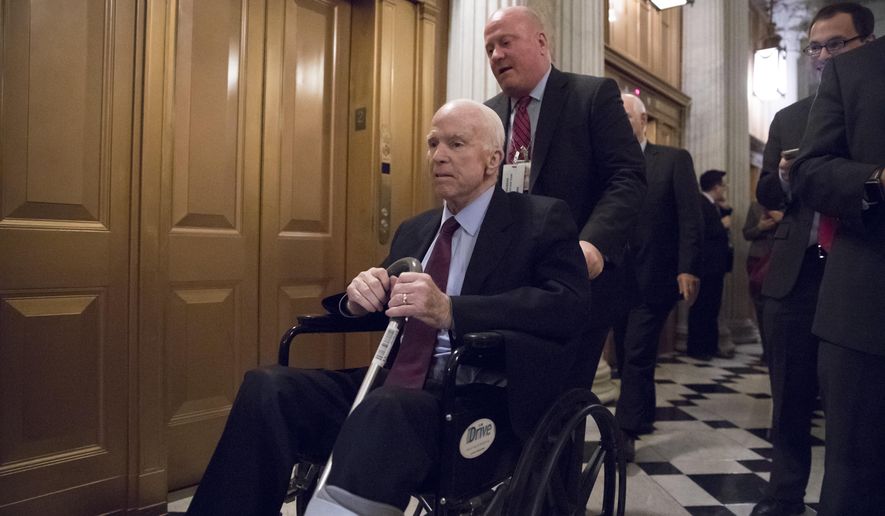Sen. John McCain announced Thursday he will support the Senate’s GOP tax-cut bill, handing leadership a crucial “yes” vote potentially hours before a vote on final passage of the legislation.
“After careful thought and consideration, I have decided to support the Senate tax reform bill,” the Arizona Republican said in a statement. “I believe this legislation, though far from perfect, would enhance American competitiveness, boost the economy, and provide long overdue tax relief for middle class families.”
Mr. McCain, along with about a half-dozen other senators, was seen as a swing vote on the tax bill. He cast a surprise “no” vote earlier this year that helped kill one of the Senate GOP’s bids at repealing Obamacare.
He said he was pleased that the bill went through the regular committee process, with several hearings and a markup in the Senate Finance Committee.
“I have also argued that health care reform, which is important both to the well-being of our citizens and to the vitality of our economy, should proceed by regular order. This bill does not change that,” he said.
He did go on to applaud the tax bill’s repealing the individual mandate in Obamacare, calling the mandate an “onerous tax” that disproportionately affects lower-income earners.
All 52 Republican senators voted on Wednesday to start debate on the bill, though several continue to express concerns on issues ranging from health care to the $1.4 trillion-plus package’s effect on the federal debt.
Majority Leader Mitch McConnell can afford no more than two defections, assuming no Democrats support the legislation.
Mr. McCain said he takes seriously his colleagues’ concerns about the bill’s effect on federal deficits, but that the net effect on the economy would be positive.
“This is not a perfect bill, but it is one that would deliver much-needed reform to our tax code, grow the economy, and help Americans keep more of their hard-earned money,” Mr. McCain said.
The Senate GOP plan slashes the corporate tax rate from 35 percent to 20 percent, lowers individual rates, and eliminates various exemptions and deductions while expanding others.
The House passed its own, similar version earlier this month. If the Senate passes its plan this week, it will ultimately have to be reconciled with the House bill, either through a bicameral conference committee or if one chamber simply passes the other chamber’s version.
• David Sherfinski can be reached at dsherfinski@washingtontimes.com.




Please read our comment policy before commenting.